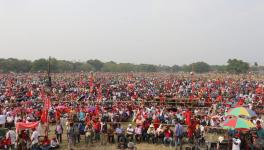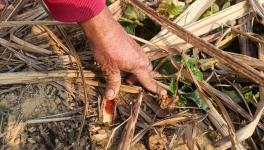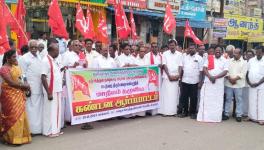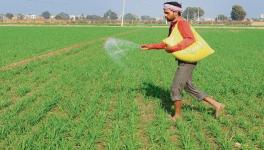Cane Farmers’ Body Calls for Nationwide Protests on July 20 for Higher Prices, Share in Profits
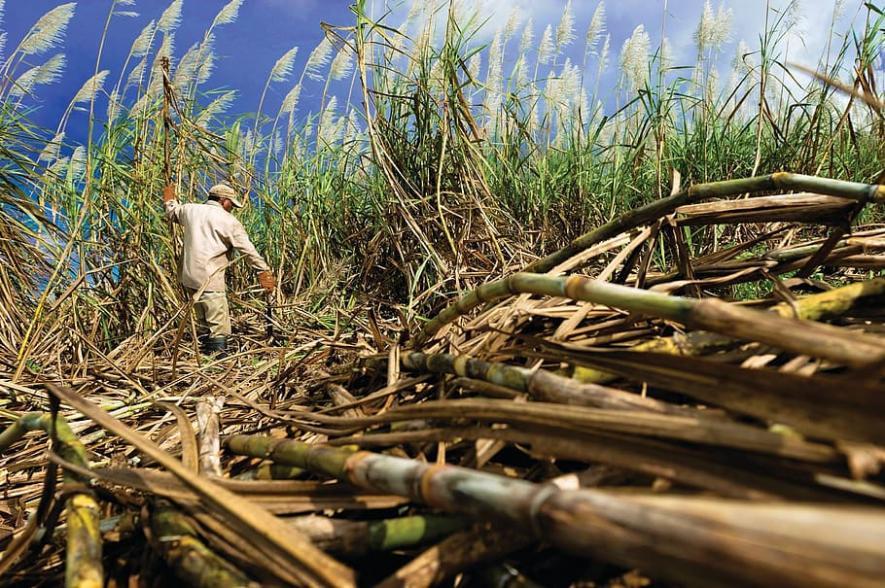
Representational Image. Image Courtesy: Pxfuel
New Delhi: Sugarcane farmers, angry with the government’s measly Rs 10/quintal hike in Fair and Remunerative Price (FRP), have called upon farmers across states to organise a countrywide protest on July 20 in front of sugar mills or Central government offices.
The call, given by the All India Sugarcane Farmers' Federation (AISFF), affiliated with the All India Kisan Sabha (AIKS), also declared a ‘national protest day’ on the same date to express their dissatisfaction with the Bharatiya Janata Party (BJP) government's “continuous betrayal of farmers.”
In a press statement, the AISSF criticised the Central government, headed by Prime Minister Narendra Modi, for announcing a meagre increase of only Rs 10/quintal (Rs100/tonne) in FRP of sugarcane for the 2023-24 season. It said that over the past five years, the price of sugarcane had only increased by Rs. 40/quintal, from Rs. 275 to Rs. 315/quintal, at a basic sugar recovery rate of 10.25%.
The federation said the cane armers across the country had been demanding a price based on the Swaminathan Commission formula of C2+50%, which translates to a minimum of Rs. 500/quintal or Rs. 5,000/tonne as the FRP of cane at a recovery rate of 9.5 %. “However, the government's announcement fails to consider the rising production costs due to skyrocketing input prices,” it said.
A table accompanying the press release highlights the projected costs (C2) for sugarcane production in various states and the loss incurred by farmers at the announced FRP of Rs. 315/quintal. The weighted average of state government projections of C2 costs amounts to Rs. 438.75/quintal under the C2+50% formula. In contrast, the current FRP of Rs. 315/quintal results in a loss of Rs. 123.5/quintal for farmers nationwide.
The federation further demanded a share in profits generated from the sale of primary byproducts such as bagasse, molasses, and press mud, as well as a share of earnings from ethanol production and co-generation of power. The press release pointed out that sugar mills owe substantial arrears to farmers, and the closure of hundreds of mills across the country had placed the farmers in a state of “severe distress.”
In light of these grievances, the federation urged the Centre to immediately revise the price of sugarcane and set it at Rs. 500/ quintal (Rs. 5,000/tonne). They also demand a fair share in profits from byproducts, arrears payment, and closed mills reopening. Additionally, it also opposed privatisation of cooperative and public-sector sugar mills.
Highlighting the concerns raised by the Commission on Agricultural Costs and Prices (CACP), which indicates that the revenue-sharing formula may result in lower cane prices than the FRP due to low sugar prices and/or by-product values, the federation said to address this issue, the CACP (Commission for Agricutural Costs and Prices) recommends the establishment of a Price Stabilisation Fund, which would act as a self-financing mechanism to bridge the gap between the revenue-sharing formula payment and FRP during periods of low sugar prices. It accused the Union government of shirking its responsibilities and warned against the dangers of the current revenue-sharing formula.
The release also notes that the CACP suggests a staggered payment system for farmers, as most sugar mills cannot pay within the mandated 14-day period due to the staggered realisation from sugar sales throughout the year. It opposed this recommendation and criticised the CACP for fixing low prices for sugarcane while discouraging states from setting higher State Advised Prices (SAP).
The AISFF said these “retrograde recommendations primarily benefit corporate companies rather than prioritising the interests of the farmers.”
Get the latest reports & analysis with people's perspective on Protests, movements & deep analytical videos, discussions of the current affairs in your Telegram app. Subscribe to NewsClick's Telegram channel & get Real-Time updates on stories, as they get published on our website.













